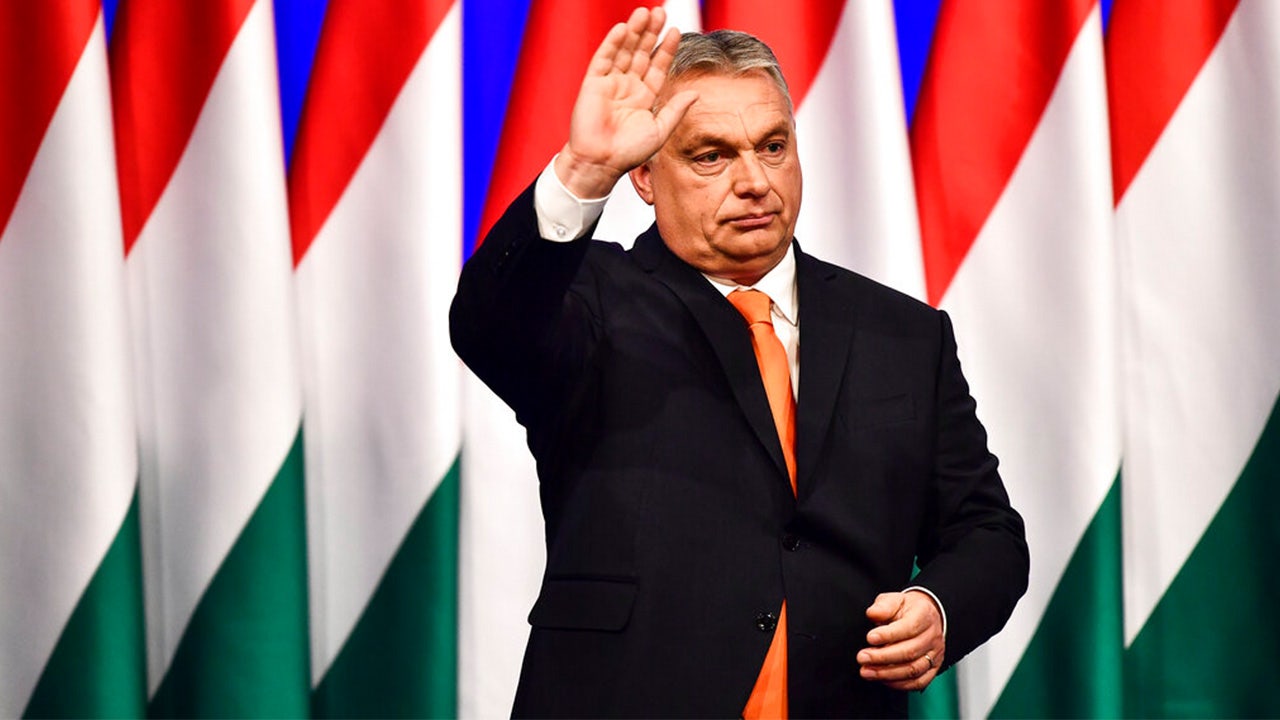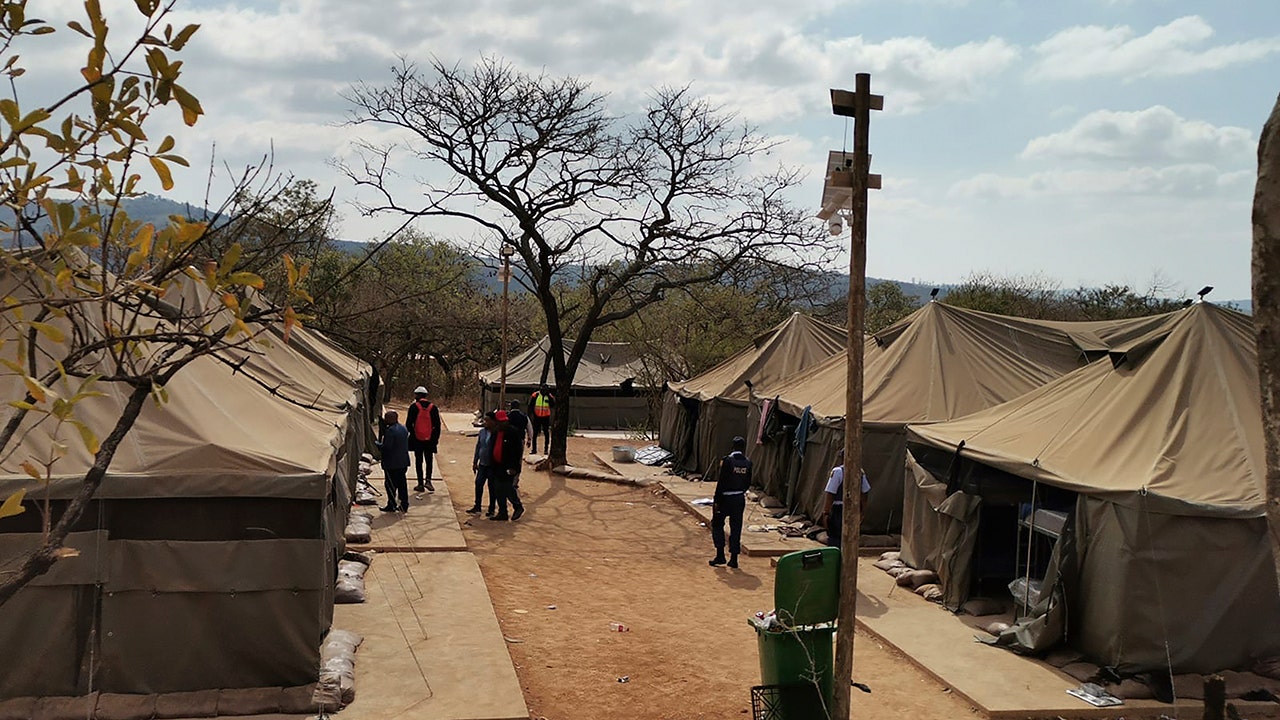World
Orbán government takes victory lap, despite party's worst-ever performance in EU parliament race

The day after Hungarians voted in the European Parliament elections, Prime Minister Viktor Orbán’s government declared a big win, but missing from the victory speeches was an acknowledgement that it was his party’s worst performance in an EU election since Hungary joined the bloc 20 years ago.
The lackluster showing can largely be attributed to the emergence of a new political force in Hungary — Péter Magyar, a former insider in Orbán’s Fidesz-KDNP coalition, who broke with the party and declared his intention to build a popular movement to defeat Orbán and sweep away his autocratic system.
Eleven of Hungary’s 21 delegates to the EU’s legislature will come from Fidesz — more than any of its domestic competitors. After tallying 44% of Sunday’s vote, the government said the result clearly signals overwhelming support for Orbán’s hard-right nationalism.
GERMANY’S CONSERVATIVES FINISH FIRST IN EU ELECTION, AS FAR-RIGHT MOMENTUM SENDS FRANCE’S LEADER SCRAMBLING
“Never before have so many people, 2.015 million, voted for Fidesz-KDNP in an EP election,” spokesman Zoltán Kovács wrote Monday on the social media platform X. “The message is clear: Hungarians say no to war, migration, and gender ideology.”
Nonetheless, Fidesz has never performed so poorly in a European Union election since it joined in 2004. Votes for the party were down sharply from its 52% support in the 2019 polls, and it lost two of its European Parliament seats.
András Bíró-Nagy, an analyst and director of the Budapest-based think tank Policy Solutions, said the power of Orbán — who returned to office in 2010 — has never been more at risk.
“We are in an unknown territory because previously it was not imaginable that a single political party could mount a serious challenge to Viktor Orbán,” Bíró-Nagy said.
FILE – Viktor Orbán waves after his annual state of the nation speech in Varkert Bazaar conference hall of Budapest, Hungary, Feb. 12, 2022. (AP Photo/Anna Szilagyi, File)
Magyar’s new party, Respect and Freedom (TISZA), won nearly 30% of the vote on Sunday, earning seven delegates in the EU legislature. He has said the election would propel his movement into a stronger position to challenge and defeat Orbán in the next national ballot, scheduled for 2026.
Late Sunday, thousands of Magyar’s supporters gathered next to the Danube River to await the election results. Addressing the jubilant crowd, Magyar said his party’s performance was a “political landslide” that would usher in a new era of “useful, fair and, especially, honest” governance.
“Today marks the end of an era,” Magyar said. “This is the Waterloo of Orbán’s factory of power, the beginning of the end,” he said, referring to the battle that ended the Napoleonic Wars.
Magyar campaigned less on a specific party program than a structural critique of Orbán’s system, which he characterized as rife with corruption, nepotism, intimidation and propaganda.
He derided the condition of Hungary’s education and health care systems, accused Fidesz of creating a class of oligarchs enriched with lucrative public contracts, and vowed to form a more constructive relationship with the EU.
Hungary’s traditional opposition parties, through pressure from Orbán’s government and their own fractiousness and infighting, have been unable to mount a serious challenge to Fidesz in the past 14 years.
“The Péter Magyar phenomenon is the symptom of a deep crisis in Hungarian politics,” said Bíró-Nagy. “This reflects not only some disillusionment with the Orbán regime, but it shows the complete disillusionment with the established opposition.”
“Many people in Hungary are craving for something new, are craving for change, and they are willing to support basically anybody who shows potentially some strength against the Orbán regime,” he said.
Magyar’s rise followed a series of scandals that rocked Orbán’s government and prompted the resignation of the president and justice minister. A deep economic crisis, compounded by the highest inflation in the 27-member EU, also led to a drop in popularity for the bloc’s longest-serving leader.
Meanwhile, the EU has frozen more than 20 billion euros ($21.5 billion) to Hungary over its violations of rule-of-law and democracy standards, and Orbán’s friendly relations with Russian President Vladimir Putin have pushed him further into the margins from his EU and NATO allies.
Ahead of the elections, the five-time prime minister campaigned on an anti-EU platform, and cast the ballot as a contest that would decide whether Russia’s war in Ukraine would engulf Europe.
He relied heavily on culturally divisive issues such as migration, LGBTQ+ rights and fears that the war could escalate to involve Hungary directly if his political opponents were successful.
But Fidesz’s weakened position suggests Orbán’s hopes that the EU election would consolidate euroskeptic parties and deliver him a bigger role on Europe’s far-right have likely been dashed.
“Orbán has already taken the place of the radical right in Hungarian politics,” Bíró-Nagy said. “But the breakthrough that Viktor Orbán was hoping for didn’t materialize at the European level.”

World
Celine Dion Makes Triumphant Comeback at Paris Olympics Opening Ceremony — Watch Full Performance

ad
World
95 Libyan nationals arrested in South Africa at suspected secret military training camp

South African police arrested 95 Libyan nationals in a raid on a suspected secret military training camp on Friday and authorities said they were investigating whether there were more illegal bases in other parts of the country.
The camp was discovered at a farm in White River in the Mpumalanga province, about 360 kilometers (220 miles) northeast of Johannesburg, police said.
ELEPHANTS KILL TOURIST IN SOUTH AFRICA AFTER HE TRIED TO GET CLOSE TO TAKE PICTURES
National police spokesperson Athlenda Mathe said in a post on the social media site X that the Libyans stated they had entered the country on study visas to train as security guards, but police investigations suggest they have received military training.
The Newzroom Afrika TV news channel broadcast pictures of the site of the arrests, showing a military-style camp with large green and khaki tents set up in a row. Dozens of men were seen lining up as they were arrested. They were wearing civilian clothing.
Local government official Jackie Macie said investigations were ongoing and the owner of the farm would be questioned. He said authorities received information that there were similar secret camps near two other towns in Mpumalanga province.
A camp where 95 Libyan nationals were arrested on suspicion of running an illegal military camp are seen lining up after their arrest on Friday, July 26, 2024 in White River, South Africa. Police say that 95 Libyan nationals were arrested on suspicion of receiving training at a secret military camp in the north of the country. (AP Photo/Bulelwa Maphanga)
The province borders neighboring countries Mozambique and Swaziland and is an area of concern for South African authorities with regards to illegal immigration.
Police and authorities have not said whether the camps are suspected of being connected to a particular group or conflict.
Macie said investigations would establish if there was a network of camps in South Africa and show “why they are here doing military training in our country.”
Police said the men may be linked to crimes reported in communities close to the farm in recent months.
“We have serious cases which have been opened with the police, including cases of rape and armed robberies, which complainants claim were committed by unknown foreigners who seem to be of Asian descent,” said police spokesman Donald Mdhluli.
“We take what we have found here today very seriously because we don’t know who was training them, what were they being trained for and why that training is happening here in South Africa. It may be a threat not only to South Africa but also to the entire southern Africa region.”
Police said the operation to arrest the Libyans and close down the camp began two days ago. Macie said the Libyan nationals had been in the country since at least April.
“The 95 individuals taken into custody are all Libyan nationals and are currently being questioned by the relevant authorities,” Mpumalanga acting provincial police commissioner Maj. Gen. Zeph Mkhwanazi said in a statement.
Mdhluli, the police spokesman, said the country’s security regulator had confirmed that the kind of training that appears to have been taking place at the camp was well beyond the scope of training for security guards.
“The kind of equipment we found here shows that there was intense military training taking place here. This was basically a military base.”
World
Passengers face long, uncertain wait at stations amid rail disruption

A deliberate fire in a signal box about 60 km south of Lille caused the disruption on the northern high-speed line, with traffic halted around 5 a.m. local time on Friday.
Travel was severely disrupted in Lille on Friday, one of the stations affected by the sabotage that hit major French rail lines ahead of the Paris Olympics opening ceremony.
Many passengers waited with hope that soon turned to resignation.
“We’ve been waiting since 10:38 a.m. for the 11:38 a.m. train, and now we’re just waiting for it to arrive at 2:08 p.m.,” said Delphine, one of the stranded passengers.
“It’s still quite a delay, and we’ll be even later since we’re on a secondary route. I work in Avignon at 9 p.m., so it’s going to be very, very tight. We have a concert tonight — will it even happen? This is all very confusing, and we don’t understand what’s going on.”
For one traveller, this was a rough start to the holidays. “The worst case would be if the train is cancelled entirely and we have to buy new tickets for next week. It would shorten our already brief vacation. That would be a huge problem,” said Hippolyte.
When asked if he had been informed of the delays, Hippolyte said he received the notification just before departure.
“At around 10 a.m. this morning, we were told we were an hour late and would be leaving at 1 p.m.”
“It just keeps getting later as the day goes on. Every time we approach the new departure time, it gets pushed back another hour and a half, or half an hour each time.”
A deliberate fire in a signal box about 60 km south of Lille caused the disruption on the northern high-speed line. Traffic was halted around 5 a.m. on Friday.
The recent acts of sabotage on the rail network highlight that the Olympic Games are turning France into a prime target.
The attack disrupted the transport system on the opening day of the Games, causing delays of up to two hours or even cancellations that affected hundreds of thousands of passengers nationwide.
Authorities in Paris have said they are deploying substantial human resources to counter any threats and to ensure the safety of the events.
-

 World1 week ago
World1 week agoOne dead after car crashes into restaurant in Paris
-

 Midwest1 week ago
Midwest1 week agoMichigan rep posts video response to Stephen Colbert's joke about his RNC speech: 'Touché'
-

 News1 week ago
News1 week agoVideo: Young Republicans on Why Their Party Isn’t Reaching Gen Z (And What They Can Do About It)
-

 Movie Reviews1 week ago
Movie Reviews1 week agoMovie Review: A new generation drives into the storm in rousing ‘Twisters’
-

 News1 week ago
News1 week agoIn Milwaukee, Black Voters Struggle to Find a Home With Either Party
-

 Politics1 week ago
Politics1 week agoFox News Politics: The Call is Coming from Inside the House
-

 News1 week ago
News1 week agoVideo: J.D. Vance Accepts Vice-Presidential Nomination
-

 World1 week ago
World1 week agoTrump to take RNC stage for first speech since assassination attempt














